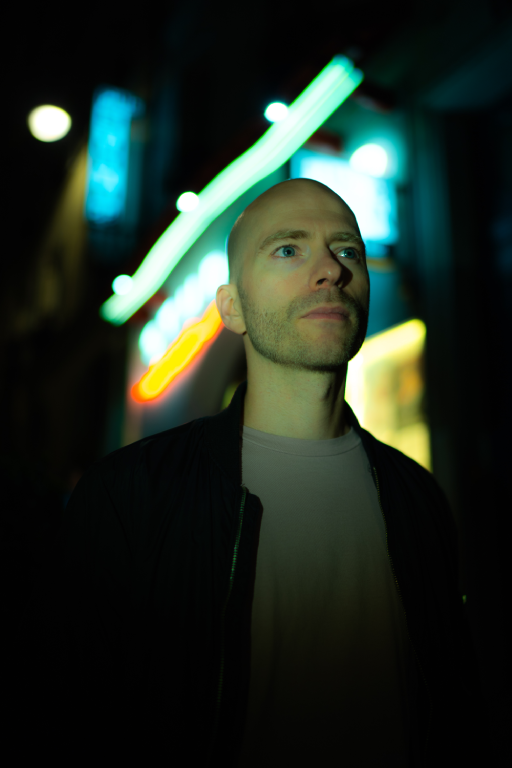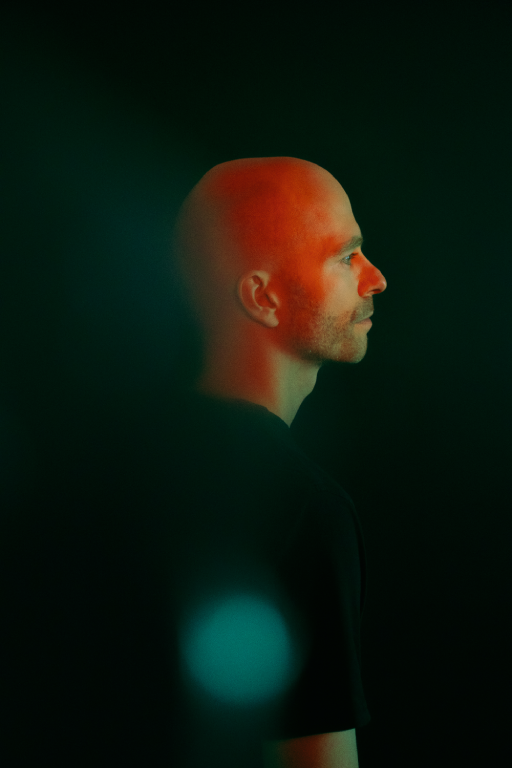LIVE
FERDINGER
Hello Ferdinand, welcome. Could you tell our readers why you chose your artist name and what it means to you?
If I remember correctly, it came about by chance. At some point, my uncle started calling me Ferdinger, and when I was searching for an artist name, it somehow felt right. I like the fact that it doesn’t really mean anything; it just has a vibe to it without being too specific. There’s a remote similarity to a certain German beer brand, but that was totally unintentional. I think artist names shouldn’t be too concrete because, over time, they risk feeling outdated or bland

What was the main goal of launching your record label?What kind of sound does it primarily aim for?
To be honest, in the beginning, it wasn’t really planned to become what it is today. The first release came together while I was still studying in Cologne, and it was kind of a dissertation/final thesis project. As the assignment was to prepare a full release and ideally put it out, I ended up creating Life In Patterns as a platform for it and then kept going, as it allowed me to be in full control of the artistic direction and choices, as well as define my own release schedule.
Even though the overall sound of the label has evolved over the years (it was founded in 2017), I still feel it has stayed true to its original DNA. The aim is an energetic, colorful, and compelling sound, walking the line between minimalism and dynamic versatility. I’m looking for dancefloor-oriented tracks that have a hypnotic but driving vibe, while ideally retaining a rather “neutral” mood. By this, I mean they shouldn’t feel overly happy, dark, or aggressive—more like an intense meditation, if that makes sense haha.
Could you tell us a bit more about your project with ‘Lalaland Artists’? What are you working on there?
With Lalaland, I work on special projects that go beyond the dancefloor, like composition and sound design for exhibitions, advertisements, fashion, etc. This includes soundtracks for experiential/immersive and surround setups.
Would you say that music has become your full-time job? What is the most challenging aspect of it?
At the moment, it is indeed my full-time job. The challenging aspects are obviously the constant search for work and payment to make ends meet (like in every freelance profession). Furthermore, you have to become proficient in a variety of domains that go beyond your primary line of work (communication, management, logistics, to name a few), which in my case would be composition and music production. Finally, the fact that you always have to motivate yourself, as, at the end of the day, nobody else is going to do the work for you. I don’t regret it though; it’s still a lot of fun, and at this point, I couldn’t imagine going back to working part-time, which I have done in the past.

How is your studio set up? What equipment do you consider essential when producing?
Ableton Live as DAW, in combination with a bunch of controllers and keyboards, is the heart of my production. Nowadays, I try to go for dualistic approach, meaning that I combine digital and analog sound sources and a combination of jammed, as well as sequencer-view-made arrangements. Overall, most of the work happens in Live, but I have some outboard gear like a Virus TI, an Analog Four MK1, a Digitone, and a Strymon Volante Delay that I use quite a lot. Apart from that, I use a wide range of plugins, my favorites being those from D16, Fabfilter, Native Instruments, iZotope, Soundtoys, Arturia, and a bunch of UAD stuff.
If you want to add anything else, what would it be?
If I may be slightly provocative, and as a recommendation to people starting out in the music scene as producers and DJs, while it’s totally legitimate and essential to be serious about one’s own work, I think one should try not taking oneself too seriously. I’m sometimes surprised by how overly confident some people become once they start getting successful and how important they seem to consider themselves. After all you’re not working on the cure for cancer or helping mankind travel to space, so a bit of humility is appropriate. To finish with a quote by the German poet Goethe: “You cannot learn early enough how expendable you are in the world.”